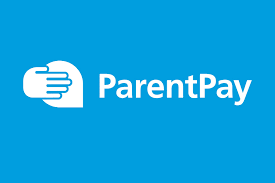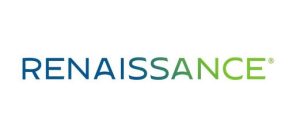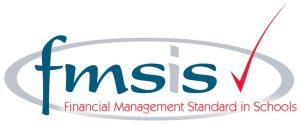Updated January 2024
Most children and young people in mainstream schools will have their special educational needs met through good classroom practice. This is called Quality First Teaching.
As a school we measure children’s progress in learning against National expectations and age related expectations. The class teacher continually assesses each child and notes areas where they are improving and where further support is needed. As a school, we track children’s progress every term from Reception through to Year 6 to ensure that we can carefully monitor progress and attainment. Children who are not making expected progress are identified and a discussion takes place concerning why individual children are experiencing difficulty and what further support can be given to aid their progression.
Early Identification of Need
As a school, we assess all children continuously across all areas of learning including the four broad areas of Special Educational Needs. We assess informally everyday through observations and we formally assess at the end of every term to measure progress and identify the next steps in learning. We work in partnership with parents, carers and pupils by building good relationships, working together and supporting each other. If there is an identification of need then we will discuss this with parents and if needed provide a pupil with a Short Note. We will share this with parents and may begin to gather evidence to inform whether to make special education provision and consider if we need to consult with relevant external agencies and use assessment tools and materials to ensure early help or identification of SEN happens.
- Early Years, Key Stage 1 and 2 staff and the SENCO, where necessary, liaise with Nursery or the child’s previous school.
- On entry into Early Years, we assess the children using the Speech and Language Link programme as this can be an early indicator of a child experiencing difficulties.
- If a child is performing below age expectations then meetings will be held with the class teacher and SENCO. Observations of the child may also take place.
- SEN is also discussed at staff meetings so that all staff can contribute to the identification process.
- We have regular parent meetings and take into account any concerns raised by parents. We pride ourselves on having an ‘open door policy’ where at any point parents can talk to staff.
- Liaison with external agencies we work closely with Movement Support, Speech and Language, Occupational Therapy, CAMHS, Crisis Response, Educational Psychology, The School Nurse, and Behaviour Support.
- Health diagnosis through local paediatricians at the hospital.
Our school can also provide emotional and social support for children through:
– Lego Therapy
– Draw and Talk therapy
– TALKABOUT programme
– Peer mentoring systems.
– Social skills/nurture group interventions – provided by both internal staff and external agencies
– Self-esteem interventions including counselling
– Anti-bullying policies which are taught within our PSHE curriculum
– After school provision through school clubs
– Administration of medicines
SEN Support
At St Helen Auckland Primary School we follow a graduated support approach which is called “Assess, Plan, Do, Review”. This means that we will:
- Assess a child’s special educational needs
- Plan the provision to meet your child’s aspirations and agreed outcomes
- Do put the provision in place to meet those outcomes
- Review the support and progress
As part of this approach, we will produce a SEN Support Plan that describes the provision that we will make to meet a child’s special educational needs and agreed outcomes. Parents and carers will be fully involved in this process. A small percentage of children and young people with significant learning difficulties might need an assessment that could lead to Top Up funding or an Education, Health and Care Plan.
All children with additional needs with have a support plan in place, personalised to their individuals needs. Children’s progress is closely monitored, moving them on to the next step when appropriate. Staff meet regularly with parents to provide information of their progress during SEND meetings, parents meetings and TAF meetings. For children with Education Health and Care Plans, an Annual Review will take place, involving the pupil, parents, staff from school and any external agencies working with them.
Each child’s teacher will be finding ways to support them such as:
- Changing the way activities are planned and delivered
- Matching activities to the ability / need of each child (differentiation)
- Adapting learning materials such as equipment and activities to suit each child’s needs
- Offer small group support to promote skills identified in the child’s SEN Support Plan.
Teachers/SENCO and Support Staff will work with parents and children to identify the support needed to meet agreed outcomes. The provision is planned and interventions are allocated to individual needs. The children take an active role with setting their targets, discussing them with the class teacher/SENCO. When the child’s Support Plan is reviewed comments are made against each target to show what progress the child has made. If the child has not met the target, the reasons for this will be discussed, then the target may be adapted into smaller steps or a different approach may be tried to ensure the child does make progress. Staff regularly track the progress of children with SEN through school tracking systems, review meetings, lesson observations and support plans.
For more detailed information see the Local Offer
How do we assess and review progress?
If your child has SEN, it is important for us to carry out formal assessments to identify their strengths and identify their needs accurately. We carefully assess your child to identify their strengths and areas of need using a range of assessments. These assessments may be carried out by staff within school or other professionals with your agreement. When your child enters our school, their current attainment is assessed which is referred to as their baseline. Some of the assessment methods are:
-
- Speech Therapy Assessments – which may focus on sound production, language understanding, or other relevant assessments to your child’s needs
- Education Psychology Assessments – which may include memory, understanding, reasoning, logic, and general skills assessments
- Ongoing school assessment including:
– Reading, writing, maths assessments
– Phonic and spelling assessments
– Social and emotional assessments
Other assessments may also be needed. These could include:
Communication and interaction (SLCN, ASC)
-
-
- Talkabout Programme assessment tool by Alex Kelly
- Speech and Language Link Assessment
-
Cognition and learning (MLD, PMLD, SLD, SpLD)
-
-
- Subject specific assessment
-
Social, Emotional and Health Difficulties
-
-
- Talkabout Programme assessment tool by Alex Kelly
- Assess through observations of pupils
-
Sensory and/or Physical Difficulties
-
-
- Movement Programme baseline assessment
- Handwriting and copying skills baseline assessment
-
SEN and Wellbeing Interventions Parent Information
Your child will be assessed against age related expectations for children who are working on the National Curriculum (i.e. the same as the majority of other children in their year group), or they may be assessed against other measures for children who are not ready to work on National Curriculum Levels (i.e. the steps before the National Curriculum). Aspirational targets are set for all children to ensure that all children make good progress, including those not ready to access the National Curriculum. The outcomes of all assessments are shared with parents and carers at our Parent Evenings and in your child’s School Report. If other agencies are invited to work with your child, you will be invited to attend a meeting where the outcomes of these assessments and their next steps will be shared with you. If parents have any concerns then these can be shared with the class teacher and or SENCo who will arrange a meeting to discuss and resolve any difficulties.
How is the decision made about what type and how much support my child will receive?
Parents know their children best – and as a school we see parents as full partners in their child’s education. Sometimes, however, it is school staff who may initially identify a concern. If this were to be the case, school staff would organise a meeting with parents as soon as possible to discuss such concerns, what support would be appropriate and agree the next steps. SEN is also discussed at management and staff meetings to allow staff to share concerns or ideas as to how we can help the child. Teacher’s use assessments and observations of children to identify, review and evaluate their needs and gaps in their learning. We look at what we can provide to meet the child’s needs and we discuss and measure the effectiveness of the interventions the children have undertaken that term. Different children will require different levels of support in order to bridge the gap to achieve age expectations which could be on a one to one basis, with a group, run by a teacher or teaching assistant or through peer support and in or out of class. Throughout the process, we keep an on-going dialogue with yourselves as parents.
At St Helen Auckland Primary School, we currently have children with a variety of needs in school and provide the following interventions to meet the needs of our children:
Support for children with physical needs:
-
-
- Quality First Teaching, accessing a broad and balanced curriculum
- Gross Motor Skills interventions.
- Fine Motor Skills interventions.
- Specialist support from outside agencies e.g. Occupational Health
-
Support for children with speech, language and communication needs:
-
-
- Quality First Teaching, accessing a broad and balanced curriculum
- Speech and Language interventions.
- Specialist support from outside agencies e.g. Speech and Language Therapy
-
Support for children with social, emotional and mental health difficulties:
-
-
- Quality First Teaching, accessing a broad and balanced curriculum
- Children in Key Stage 2 engage in an Anti-Bullying programme.
- Learning Mentor addresses any relevant issues or concerns.
- Specialist support from outside agencies e.g. CAMHs and Counselling
- Lego Therapy
-
Support for children with cognition and learning needs:
-
-
- Quality First Teaching, accessing a broad and balanced curriculum
- Maths and English specific
- Specialist support from outside agencies e.g. Educational Psychology Service
- Specific individual support for children whose learning needs are severe, complex and lifelong and what this means for your child e.g. Dyslexia, Dyspraxia
- Range of teaching and learning styles;
- A broad range of extra-curricular activities, including After-School
- Differentiation
-
How do we evaluate the effectiveness of SEN provision?
At St Helen Auckland Community Primary School, we evaluate the effectiveness of SEN provision to ensure that pupils receive the best support to meet their needs and as part of the Graduated Approach of Assess, Plan, Do and Review. We currently evaluate the effectiveness of SEN across the four broad areas of SEN provision in the following ways:
Cognition and learning (MLD, PMLD, SLD, SpLD)
We use the assessment data provided by teaching and support staff to assess before and after any intervention to evaluate the impact of provision.
Social, Emotional and Health Difficulties
We use the Talkabout Programme assessment tool by Alex Kelly to assess before and after any intervention to evaluate the impact of provision. We can also assess through observations of pupils throughout the school day over a period of time.
Sensory and/or Physical Difficulties
We use the Movement Programme to assess before and after any intervention to evaluate the impact of provision with Gross Motor Skills. In Fine Motor Skills we use handwriting evidence from before and after interventions to evaluate the impact of provision.
How are resources made available to support children with SEND?
The resources we use to support children with SEN depend upon their needs and they are allocated on an individual basis. Once your child has been identified as SEN, their needs will be assessed and targets and outcomes will be identified. It is the responsibility of the SENCO to ensure that the resources that are required are made available and that staff are aware of their individual needs. We are very flexible in our approach and we constantly monitor and evaluate the effectiveness of our interventions and the provision that we provide.
As part of our staff professional development, all members of staff received training to support children with SEND:
-
-
- School-based CPD – systems and procedures, staff audit, staff planning and agreed action points.
- ‘SEN Outcomes –good quality outcomes, SEN Support Plans and Primary Areas of Need’.
- Supporting children with ASD.
- Sensory Specialist Training – Sensory Issues for Pupils.
- Supporting children facing trauma
-
Staff Training will vary each year depending upon the needs of the children.
A small percentage of children and young people with significant and/or complex needs may require an assessment that could lead to an Education, Health and Care Plan.










